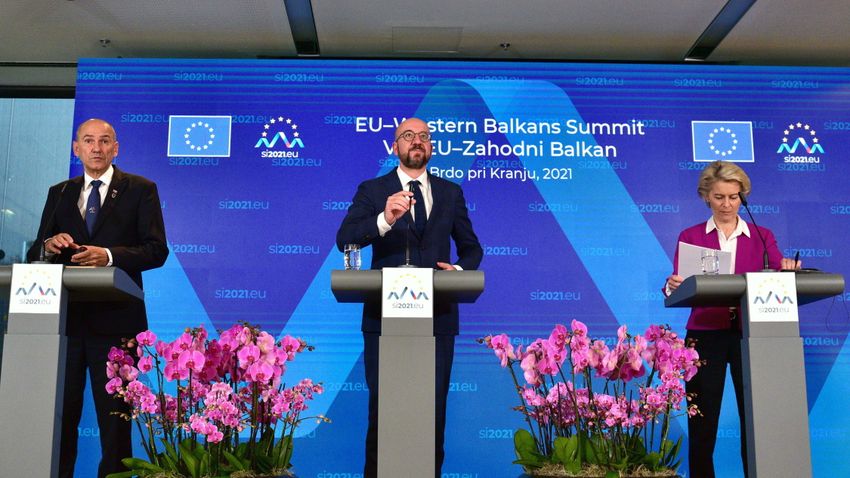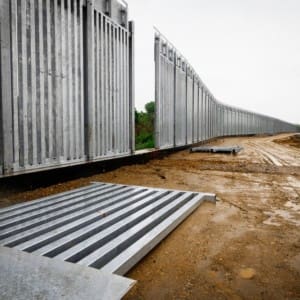In what can be described as a diplomatic win for the Visegrád Group which has been pushing for the integration of the Balkans, European Union leaders on Wednesday declared their commitment to take in these nations, but stopped short of giving a comprehensive timeframe for the expansion.
According to the summit’s final statement, the EU “unequivocally supports the European perspective of the Western Balkans” and reaffirms its commitment to the EU’s enlargement process, which is also a common strategic interest. However, the statement did not specify a timeframe for further steps in the process. The statement also emphasizes that the partners concerned must pursue credible reforms and that their integration depends on the pace of this.
Western Balkan countries include Albania, Bosnia and Herzegovina, Serbia, Kosovo, and North Macedonia. Hungary, Czechia, Poland and Slovakia have long sought to include a number of these countries, but Western Europe has dragged its feet over the issue.
“The EU accession process in the Western Balkans needs a new and strong impetus, and EU leaders need to remove obstacles to integration,” European Parliament President David Sassoli said in a letter to Charles Michel, President of the European Council, on Wednesday. Charles Michel, however, drew attention to the fact that the Union still has responsibilities in terms of recruiting new members and preparing for their full integration.
David Sassoli emphasized the need to advance the accession process of the Western Balkans more than ever.
“It is time for the leaders of the EU member states and the countries concerned to overcome the obstacles to the progress of delayed EU integration,” he said. He also warned that any further delay runs the risk of other powers seeking to gain influence in the region gaining a step-by-step advantage. He said the European Parliament was ready to help give a new impetus to the planned enlargement of the EU in the Western Balkans, depending on the progress and ambition of the reform processes in the countries concerned.
“A new impetus for integration can only have a positive impact on the region and contribute to its democratic transformation and the strengthening of good neighborly relations. A peaceful, stable and prosperous continent will bring enormous benefits to all Europeans,” Sassoli wrote, adding that the enlargement process must continue to be based on meeting the accession criteria.
The countries of the Western Balkans must implement the necessary reforms and ensure the key freedom of the press and expression in a democracy.
Among the EU’s partners in the Western Balkans, accession negotiations are already under way with Serbia and Montenegro, and it has previously been decided that they can also be opened with Northern Macedonia and Albania. Bosnia and Herzegovina has yet to be recognized by the EU as an official candidate, and Kosovo has only an association agreement for the time being. The declaration does not include concrete progress in the case of any of these countries.






